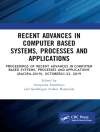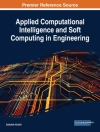MICROGRIDS for COMMERCIAL SYSTEMS
This distinct volume provides detailed information on the concepts and applications of the emerging field of microgrids for commercial applications, offering solutions in the design, installation, and operation of this new, cutting-edge technology.
The microgrid is defined as Distributed Energy Resources (DER) and interconnected loads with clearly defined electrical boundaries that act as a single controllable entity concerning the grid as per IEEE standard 2030.7-2017. It provides an uninterrupted power supply to end-user loads with high reliability. Commercial systems like IT/ITES, shopping complexes, malls, the banking sector, hospitals, etc., need an uninterrupted input power supply with high reliability. Microgrids are more suitable for commercial systems to service their clients with no service discontinuity. The microgrid enables both connection and disconnection from the grid. That is, the microgrid can operate both in grid-connected and islanded modes of operation.
The microgrid controller plays an important role in microgrid systems. It shall have an energy management system and real-time control functions that operate in the following conditions: both grid-connected and islanded modes of operation, automatic transfer from grid-connected mode to islanding mode, reconnection and re-synchronization from islanded mode to grid-connected mode, optimization of both real and reactive power generation and consumption by the energy management system, grid support, ancillary services, etc. Whenever a microgrid is in islanded mode, it will work as an autonomous system without a distribution grid power supply. In this mode of operation, fault in the transmission or distribution grid will not propagate into the microgrid. Whenever a microgrid operates in grid-connected mode, power flows bi-directionally between the distribution grid and microgrid at the point of interconnection. Hence, microgrids ensure the interrupted power supply to the end-user loads with high reliability.
This book aims to bring together the design, installation, operation, and new research that has been carried out in the field of microgrid applications for commercial power systems.
Table of Content
Acknowledgements xv
1 Smart Energy Source Management in a Commercial Building Microgrid 1
A. C. Vishnu Dharssini, S. Charles Raja and P. Venkatesh
2 Renewable Power Generation Price Prediction and Forecasting Using Machine Learning 21
Challa Krishna Rao, Sarat Kumar Sahoo and Franco Fernando Yanine
3 Energy Storage System for Microgrid for Commercial Systems 49
Anushree Ramanath
4 Emerging Topologies of DC-DC Converters for Microgrid Applications 73
Stutee Patra, Aditi Chatterjee and K.C. Patra
5 Analysis of PWM Techniques on Multiphase Multilevel Inverter for PV Applications in Microgrids 133
B. Hemanth Kumar, Kavali Janardhan, R. Seshu Kumar, J. Ramesh Rahul and P. Sanjeevi Kumar
6 Mathematical Modeling and Analysis of Solar PV-Electrolyzer-Fuel Cell-Based Power Generation System 157
R. Aruna and K. Punitha
7 Design of DC EV Charging Infrastructure in a Commercial Building Using the Solar PV System 187
J. Nishanthy, N. Sivakumar, S. Charles Raja and S. Arockia Edwin Xavier
8 Design and Simulation of a Rooftop Stand-Alone Photovoltaic Power System for an Academic Institution 207
Saswati Dey, Nilanjan Mukhopadhyay, Kuntal Das, Neha Shaw and Rajesh Halder
9 Integration of Wind Energy Control with Electric Vehicle 223
Abhishek Kumar
10 Interactive Use of D-STATCOM and Storage Resource to Maintain Microgrid Stability for Commercial Systems 241
Mostafa Eidiani, Mohammad Kargar and Hossein Zeynal
11 Power System Studies for Microgrids 271
Aditi Chatterjee and Festus Okinyi Maklago
12 EV Charging Infrastructure in Microgrid 307
K. Narasimhaiah Achari and Pallavi Gajbhiye
13 Operation and Control of EV Infrastructure for Microgrid 345
Tamilarasu Viswanathan, B. Gunapriya, M. Mathankumar, S. Suryaprakash and M. Mohamed Iqbal
14 Renewable-Energy-Powered EV Charging Station for Microgrid PSO-Based Controller for PV-Powered EV Charging Station 381
K. Punitha, R. Aruna and S. Kanthammal
15 Closed-Loop Control of Microgrids With Wind and Battery Storage System in Islanding Mode 409
Shruti Sahu, Jyoti Shukla and Basanta K. Panigrahi
References 452
Index 455
About the author
Sivaraman Palanisamy has more than seven years of industrial experience, providing techno-economical solutions to various power quality problems for industries across India. He is working as an assistant lead engineer in a leading engineering organization in Chennai, India and has trained more than 500 personnel on renewable energy and power quality, carried out power quality assessments for over 300 sites all over India in the last seven years, and validated over 200 power quality reports. He had authored, co-authored, and edited six books and published several papers in national and international conferences.
Sanjeevikumar Padmanaban, Ph D, is working as a full professor in Electrical Power Engineering with Department of Electrical Engineering, IT and Cybernetics, University of South-Eastern Norway, Porsgrunn, Norway. He has authored more than 600 scientific papers and is a fellow the Institution of Engineers, India, a fellow of the Institution of Telecommunication and Electronics Engineers, India, and a fellow of the Institution of Engineering and Technology, UK.
Sharmeela Chenniappan, Ph D, is a professor and professor-in-charge, power engineering and management in the Department of Electrical and Electronics Engineering, Anna University, Chennai, India. She has more than 22 years of teaching experience and has participated in several research projects and consultancy work in renewable energy, power quality and design of PQ compensators for various industries. She has co-authored ten book chapters, edited eight books and authored two books. She has authored more than 40 scientific papers and and is a fellow of the Institution of Engineers, India and Senior Member, IEEE, USA.












